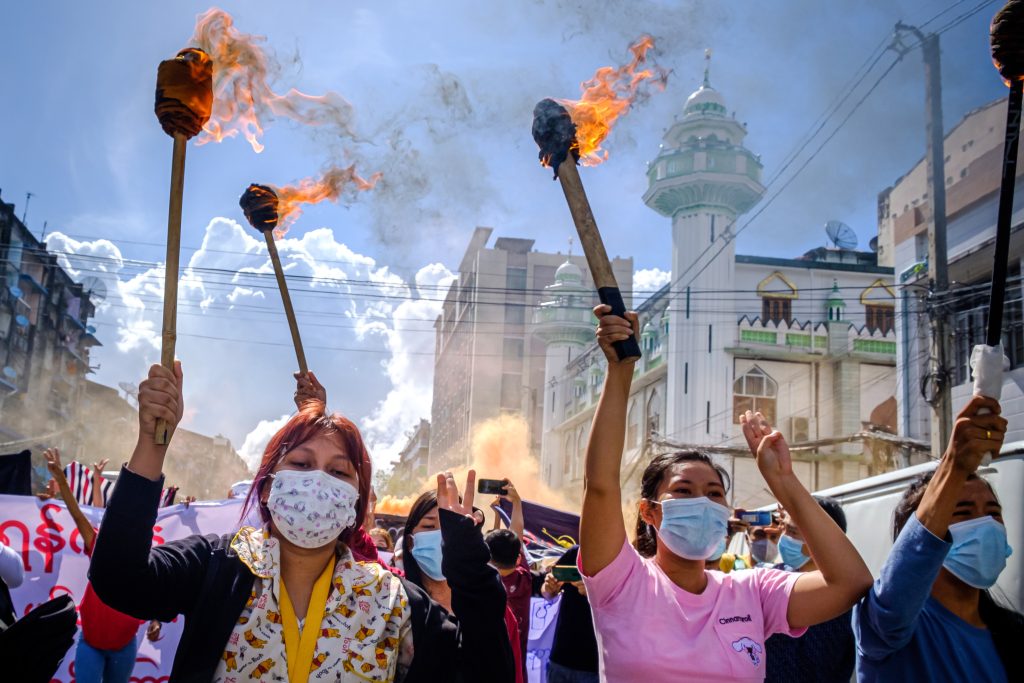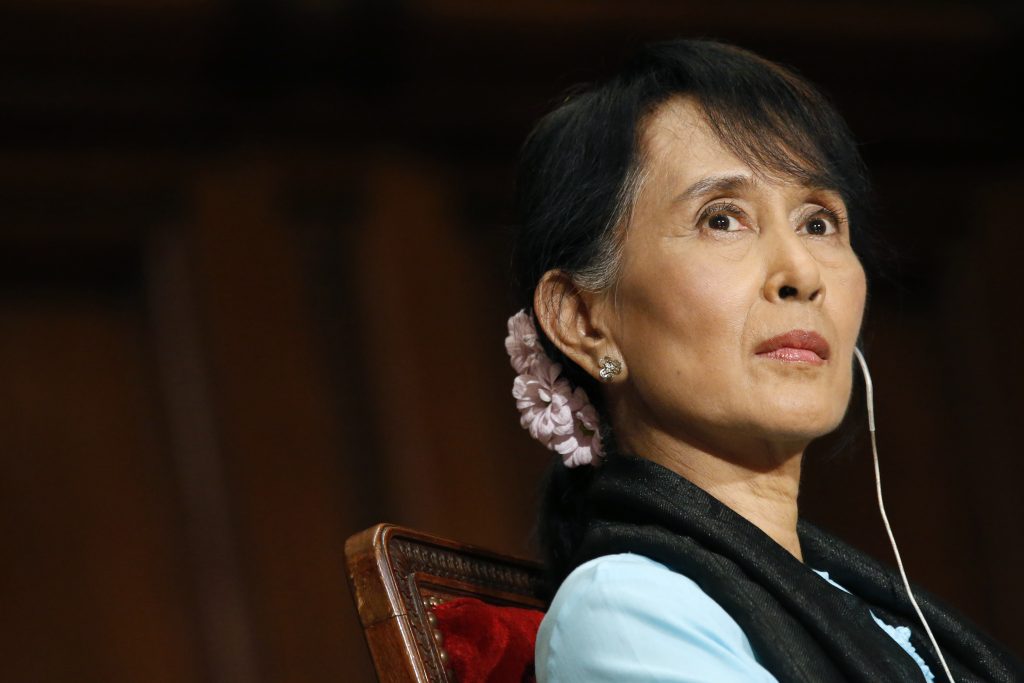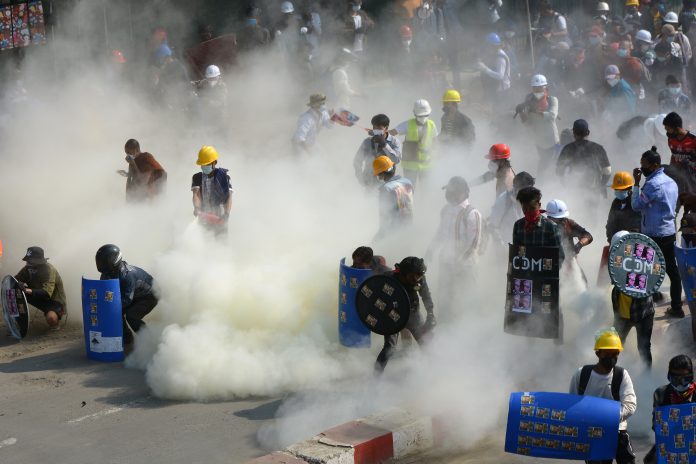Myanmar’s military seized power on February 1 last year, ousting the civilian government and arresting its de facto leader, Aung San Suu Kyi.
Nearly 1,500 people have since been killed and thousands of others arrested as the junta wages a bloody crackdown on dissent.
Here is a look back at the year since the military’s latest power grab, which ended a decade-long experiment with democracy after half a century of military rule.
Pre-dawn raids
Soldiers detain Suu Kyi and her top allies during pre-dawn raids on February 1 ahead of the opening of the new parliament.
The generals claim fraud in the November 2020 election, which Suu Kyi’s National League for Democracy (NLD) party won by a landslide.
Their actions spark global condemnation, from Pope Francis to US President Joe Biden.
Internet blocked
Resistance to the coup begins with people banging pots and pans — a practice traditionally associated with driving out evil spirits.
The junta tries to block social media platforms including Facebook, which is hugely popular in Myanmar. Nightly internet blackouts are later imposed.
Bold defiance
Popular dissent surges over the weekend of February 6 and 7, with huge crowds gathering on the streets calling for the release of Suu Kyi.
In the following weeks, these protests swell to hundreds of thousands of people in cities and villages around the country.
Workers begin a nationwide strike on February 8.
A 19-year-old woman is shot in the head when police fire on crowds in the capital Naypyidaw the next day.

International sanctions
Washington soon announces sanctions against several military officials, including junta chief Min Aung Hlaing.
More sanctions follow from Britain and the European Union.
Growing crackdown
Mya Thwate Thwate Khaing, the woman shot 10 days earlier, dies on February 19 after becoming a national symbol of opposition to the junta.
Violent crackdowns on street protests escalate and by March 11, Amnesty International says it has documented atrocities by the junta including the use of battlefield weapons on unarmed protesters.
A day later, a UN rights expert on Myanmar accuses the military of crimes against humanity.
Deadliest day
More than 100 civilians are killed in protest crackdowns on March 27 — Armed Forces Day, the military’s annual show of strength. It is the deadliest day since the coup.
The next month, ousted civilian lawmakers forced into hiding announce the formation of a shadow “National Unity Government”.
American journalist detained
Danny Fenster, an American editor at local outlet Frontier Myanmar, is detained at Yangon’s airport as he attempts to leave the country on May 24.
Following a trial inside a prison in Yangon he is jailed for 11 years in November for unlawful association, incitement against the military and breaching visa rules.
Three days later he is pardoned and freed, and flies home to be reunited with his family at New York’s JFK airport.

Suu Kyi’s trial begins
In June, more than four months after she was detained, Suu Kyi goes on trial in a junta court.
She faces an eclectic mix of charges, including illegally importing walkie-talkies and flouting Covid-19 restrictions during the 2020 elections.
COVID wave
Coronavirus infections surge across Myanmar from late June, with many pro-democracy medical staff on strike and the public avoiding military-run hospitals.
People defy curfews to queue for oxygen cylinders for their loved ones and volunteers take up the grim task of bringing out the dead for cremation.
Economic catastrophe
In July the World Bank forecasts Myanmar’s economy will contract by 18 percent in 2021 as a result of the coup and the coronavirus outbreak, with the poverty rate to double from 2019 levels.
2020 election results cancelled
In late July, the junta cancels the results of the 2020 polls, claiming more than 11 million instances of voter fraud.
Six months to the day since the military seized power, junta chief Min Aung Hlaing says new elections will be held by August 2023.
Suu Kyi jailed
On December 6, Suu Kyi is jailed for four years for incitement against the military and breaching Covid regulations. The sentence is then cut to two years.
On January 10, she is sentenced to another four years in prison after being convicted of two charges related to illegally importing and owning walkie-talkies and one of breaking Covid rules.
She will be held under house arrest in Naypyidaw while she faces a host of other charges in court, which could see her jailed for decades.









